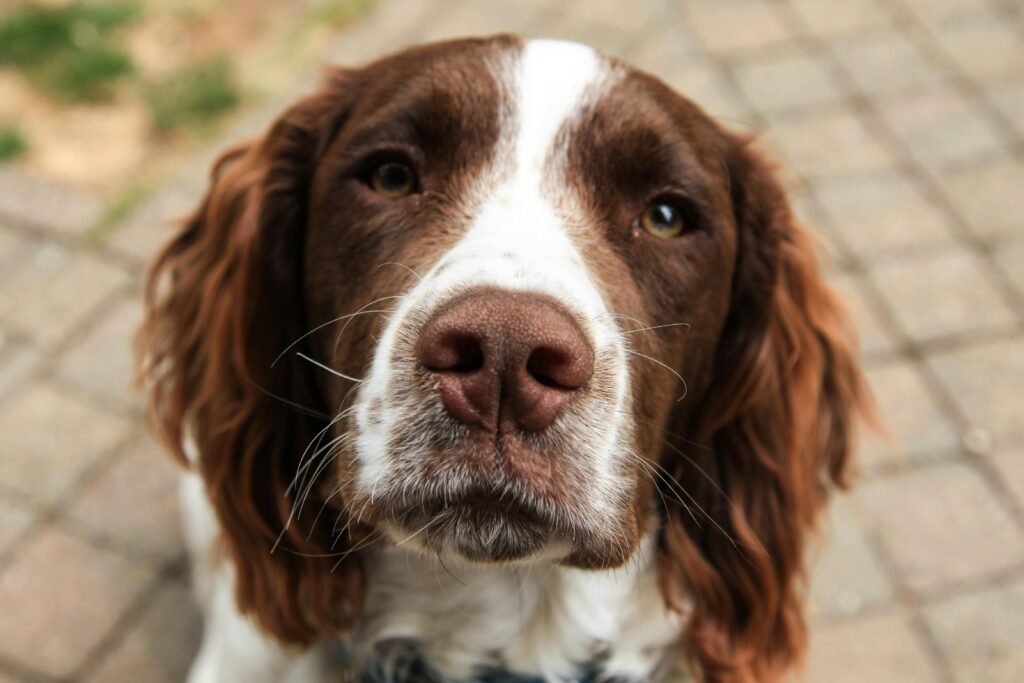As dog parents, we love our furry friends dearly and often enjoy spending as much time with them as possible. However, life sometimes requires us to leave them alone for a few hours. For many dogs, this can be a stressful experience, leading to separation anxiety. At Atlas Animal Hospital, we understand how heartbreaking it can be to see your dog struggle with being left alone. In this article, we’ll explore separation anxiety in dogs, how to recognize it, and what you can do to help your pup feel more secure.
What is Separation Anxiety in Dogs?
Separation anxiety in dogs is a behavioral issue that occurs when a dog becomes extremely stressed or anxious when left alone or separated from their favorite person. While it’s normal for dogs to miss us when we leave, dogs with separation anxiety can exhibit destructive, vocal, or nervous behaviors that suggest deeper emotional distress.
Common signs of separation anxiety in dogs include:
- Excessive Barking or Howling: If your dog barks or howls non-stop while you’re away, this could be a sign of anxiety.
- Chewing or Destroying Furniture: Destructive behavior, such as chewing furniture, digging at doors, or tearing up household items, is a classic symptom of separation anxiety.
- Urinating or Defecating Indoors: Even house-trained dogs may have accidents inside when they’re stressed by being left alone.
- Pacing or Panting: Some dogs may pace back and forth or appear restless when they realize their person is leaving.
- Attempts to Escape: Dogs with severe separation anxiety may try to escape by scratching at doors, windows, or even fences.
Understanding the signs of separation anxiety in dogs can help you take steps to address the issue and make your dog feel more at ease.
What Causes Separation Anxiety in Dogs?
While the exact cause of separation anxiety in dogs can vary, several common factors can contribute to its development:
- Changes in Routine: Sudden changes in your schedule, such as starting a new job or moving to a new home, can trigger anxiety in your dog.
- Adoption History: Dogs that have been rehomed or adopted from shelters may be more prone to separation anxiety due to their past experiences.
- Being Alone for Long Periods: Dogs are social animals and can become distressed if left alone for extended periods.
- Trauma or Stressful Events: Sudden loud noises, thunderstorms, or traumatic experiences can also contribute to separation anxiety.
At Atlas Animal Hospital, we believe it’s essential to understand your dog’s background and environment to create a customized plan for managing their anxiety.
How to Help Your Dog Overcome Separation Anxiety
The good news is that separation anxiety in dogs is manageable with the right approach. Here are some steps you can take to help your dog feel more secure when you’re not home:
- Practice Gradual Departures: Start by leaving your dog alone for short periods and gradually increase the time. This helps them adjust to being alone without becoming overwhelmed.
- Create a Safe Space: Designate a comfortable, quiet area for your dog when you’re gone. You can fill this space with their favorite toys, blankets, and even leave behind an item with your scent to provide comfort.
- Use Positive Reinforcement: Reward your dog with treats and praise when they remain calm before and after you leave. Over time, they’ll associate your departure with positive experiences.
- Exercise Before Leaving: Taking your dog for a walk or playing with them before you leave helps burn off energy and can make them feel more relaxed while you’re away.
- Consider Crate Training: For some dogs, a crate can be a comforting, safe den where they feel secure. Be sure to introduce crate training gradually and ensure that your dog views it as a positive space.
If you’re having trouble managing your dog’s separation anxiety, our team at Atlas Animal Hospital is here to help. We can recommend strategies tailored to your dog’s specific needs.
When to Seek Professional Help
While many dogs can improve with training and behavior modification, severe cases of separation anxiety in dogs may require professional intervention. If your dog’s anxiety seems to worsen, or if they’re causing harm to themselves or your home, it’s time to consult a veterinarian or a professional dog behaviorist.
At Atlas Animal Hospital, we offer personalized treatment plans for dogs struggling with separation anxiety. From behavioral therapy to medications that can ease anxiety, we’ll work with you to find the best approach for your pup.
Tools That Can Help
In addition to training and professional help, there are several tools that can assist in managing separation anxiety in dogs:
- Interactive Toys: Puzzle toys and treat-dispensing devices can keep your dog occupied and mentally stimulated while you’re away.
- Calming Aids: Products such as pheromone diffusers, calming collars, or herbal supplements can help reduce stress in anxious dogs.
- Technology: Pet cameras or two-way communication devices allow you to check on your dog and even talk to them while you’re out.
These tools, combined with a consistent routine and lots of love, can go a long way in helping your dog feel more comfortable when you’re not home.
Let’s Help Your Dog Feel Calm and Secure
If your dog is showing signs of separation anxiety, don’t wait to take action. Reach out to us at Atlas Animal Hospital today. Our caring team is here to support you and your pup through every step of their journey to feeling calm and secure. Schedule an appointment with us to discuss your dog’s specific needs and let’s find the best way to ease their anxiety together!

